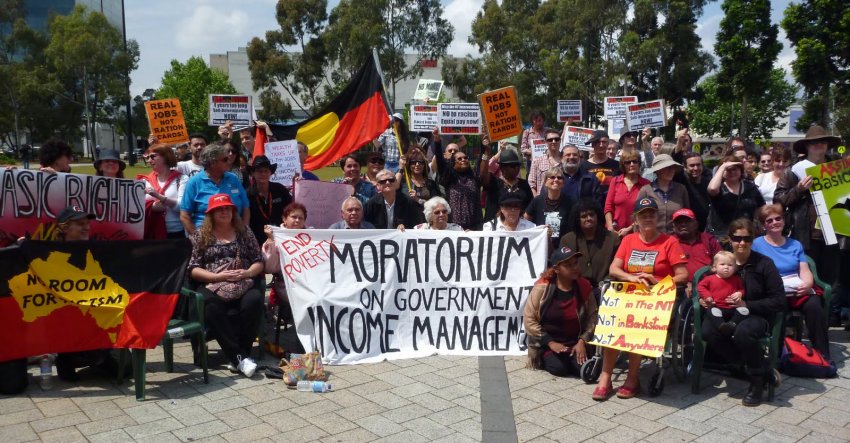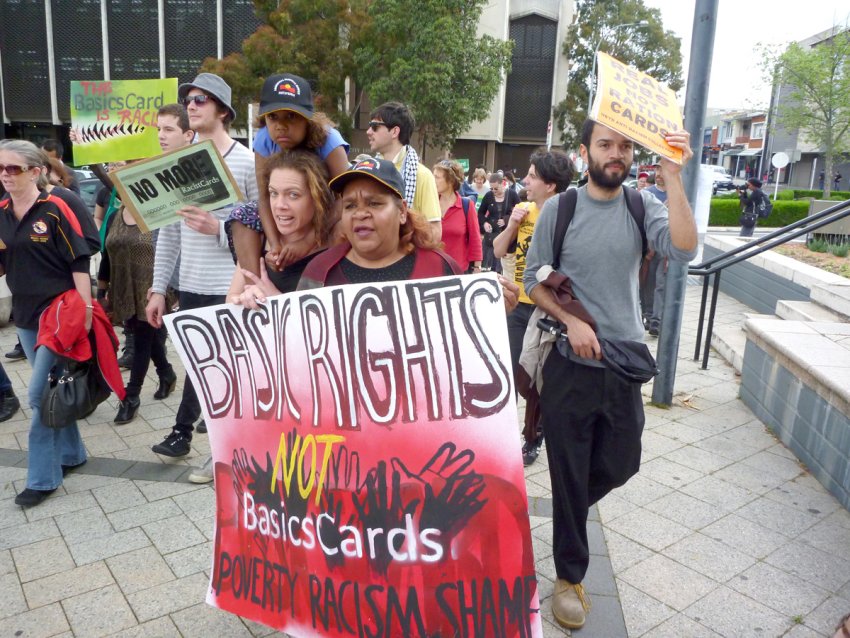
The Tony Abbott government’s moves to introduce the Healthy Welfare Card – income management on steroids – indicate that it remains committed to a welfare system based on deterrence and punishment. Once again, the government refuses to acknowledge years of negative data about the policy and its consistent failure to benefit those it will be forced upon.
The Healthy Welfare Card was the brainchild of billionaire miner Andrew Forrest, whose Indigenous Employment and Training Review proposed cashless welfare for all working-age Centrelink clients. His recommendation is an extreme version of the current model of income management, where clients usually have 50 to 70% of their payments quarantined.
There are more than 25,000 income management clients in Australia, the vast majority – roughly 20,000 – in Northern Territory, where income management has operated since the introduction of the NT Intervention in 2007.
In Playford, a northern suburb of Adelaide, income management has operated since 2012. There were 591 income management clients in January 2015, according to the Department of Social Services, with 482, or 82%, forced clients and 109, or 17%, voluntary.
The history of income management is the history of one unfounded justification after another, each one refuted by government and independent data, and the experiences of those forced on the scheme. The latest justification is domestic violence.
Parliamentary secretary to the Prime Minister Alan Tudge claimed the Healthy Welfare Card could have a dramatic impact on the rates of attacks and violence on women.
"The rates of violence in some of the high welfare communities is completely unacceptable," he said. "We want to trial this card because we believe it could have an impact on reducing the assaults and reducing violence in the community."
Government analysis, however, indicates that income management is not the answer to domestic violence. Victims should be able to choose to participate in income management, but should not be coerced.
A 2011 Australian Law Reform Commission paper on income management recommended that “The Australian Government should amend the Social Security (Administration) Act 1999 to ensure that a person or persons experiencing family violence are not subject to compulsory income management.”
They feared forcing victims of domestic violence on the program would have the side-effect of leaving them less safe, by making it harder for them to flee violent relationships.
no-income-management-rally-western-australia.jpg

The National Welfare Rights Network echoed these concerns, noting that income management could lead to “people experiencing family violence being reluctant to disclose their circumstances to Centrelink for fear of being marked for income management”.
Forced income management has been failing for as long as it has operated, Stop Income Management in Playford spokesperson Pas Forgione told Green Left Weekly.
“According to the Department's 2014 report, Place Based Income Management – Process and Short Term Outcomes Evaluation, there has been no evidence of enhanced money-management skills, better health outcomes, or reduced alcohol and tobacco consumption among those forced onto income management in Playford.
“The report is consistent with past studies that show the policy, with its enormous cost of $4000-$6000 per person, per year, and more than $1 billion spent nationwide since 2007, is not working. This scheme is wasting resources that could fund capacity-building education, employment, and health services.”
The Commonwealth Parliamentary Library's 2012 paper, Is Income Management Working?, said there was “an absence of evidence relating to the effectiveness or otherwise” of the program.
A Department of Families, Housing, Community Services, and Indigenous Affairs study from the same year, Evaluating New Income Management in the Northern Territory: First Evaluation Report, was less guarded:
“[Income management] has been applied to many who do not believe they need income management, and for whom there is no evidence that they have a need for, or benefit from income management. For many people the program largely operates more as a means of control rather than a process for building behaviours or changing attitudes or norms.”
Forgione said “The Menzies School of Health’s 2010 study of spending patterns of NT income management clients reported that apart from the impacts of government stimulus payments, there have been no significant changes to consumption of alcohol, cigarettes, and soft drink, nor to fresh fruit and vegetables, among clients.”
Tere is certainly no evidence from the NT, where rates of child protection notifications and removals have been soaring for years, that income management has led to declining rates of neglect and abuse, or improved child nutrition and wellbeing.
Forgione said “In WA, evidence from a 2009 Western Australian Council of Social Service study suggests income management has the potential to increase the dependency of clients on others, rather than building financial and personal skills.
Fifty-five per cent of surveyed financial counsellors expressed concerns about income management actually reducing clients' ability to independently manage their funds, leaving them more vulnerable in the long-run.
“It is time to move on from this punishing, failed scheme. It is time to recognise that most welfare recipients are competent and responsible with their money. They survive on grossly inadequate payments below the poverty-line. What they need are higher payments to allow them a decent quality of life, and well-funded support services for times of crisis”.